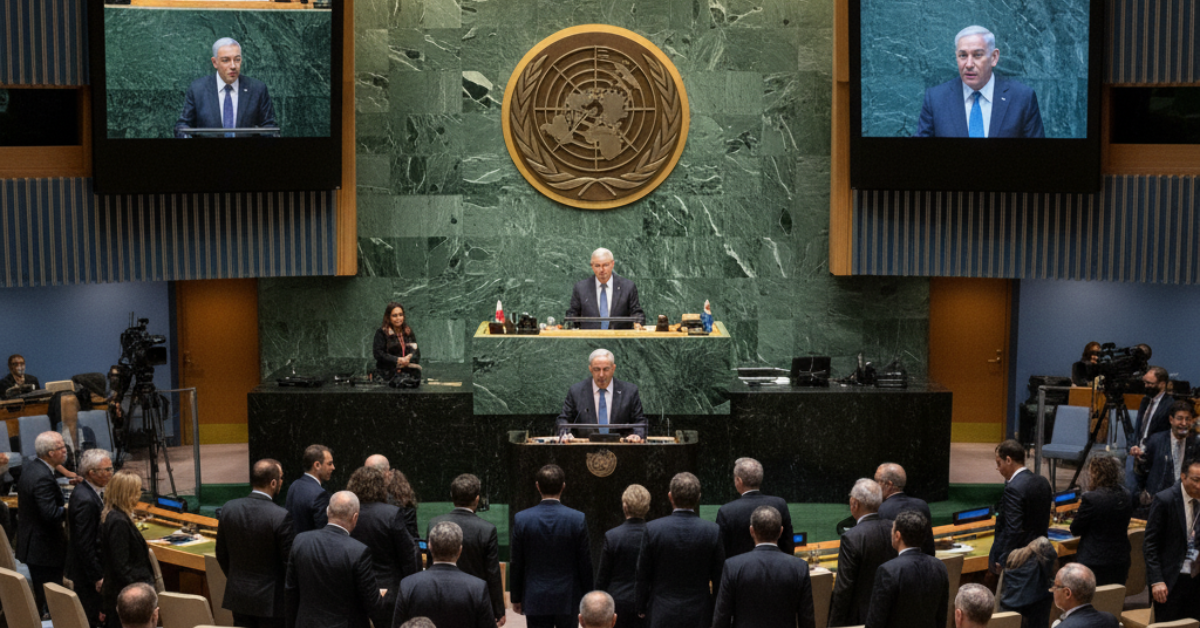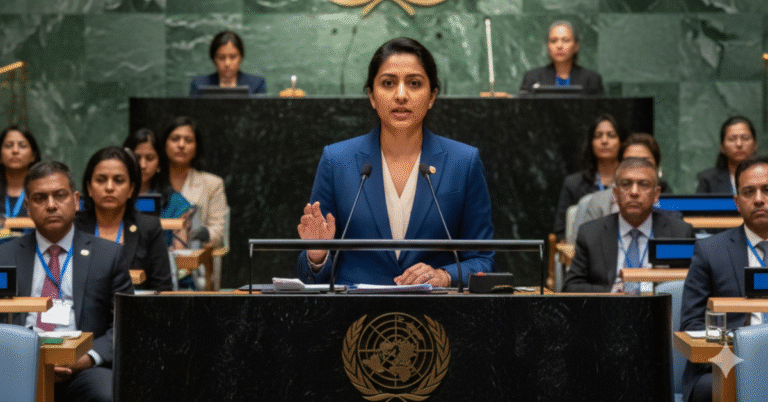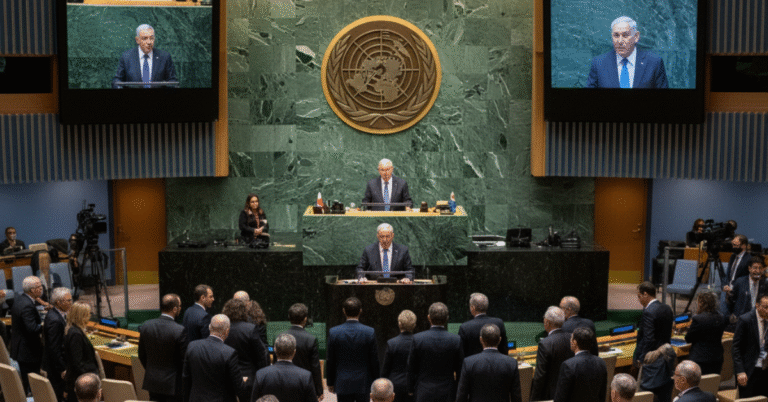
UNITED NATIONS: Israeli Prime Minister Benjamin Netanyahu’s recent address at the United Nations has ignited a fresh wave of controversy, marked by an unprecedented walkout by dozens of delegates in protest. The event, extensively covered by international media including the BBC and Times of India, highlighted the deep divisions surrounding Israel’s recent military operations and its broader policies.
The walkout occurred as Netanyahu took the stage, with delegates from several nations choosing to exit the assembly hall as a clear sign of dissent. This act of protest underscores growing international criticism, particularly in light of reports from the Times of India alleging an “unprecedented operation” where the Israeli army reportedly hijacked phones of Gaza residents.
Sources like Al Jazeera are already looking ahead to the UN General Assembly in 2025, suggesting that future sessions will likely continue to feature prominent discussions involving leaders like Netanyahu, Sharif, and Li, indicating ongoing geopolitical tensions.
Adding another layer of intrigue to the diplomatic landscape, NDTV reported that Netanyahu’s plane took an “unusual route over airspaces” to avoid potential arrest. While the specific details surrounding this claim remain a subject of discussion, it points to the heightened international scrutiny and legal challenges that some leaders face.
The incident at the UN General Assembly serves as a stark reminder of the complex and often contentious nature of international diplomacy, especially when intertwined with military actions and human rights concerns. The walkout by delegates sends a powerful message of disapproval, challenging the narrative presented by the Israeli Prime Prime Minister on one of the world’s most prominent stages.




